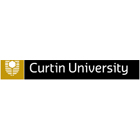Master of Clinical Physiotherapy
Master of Clinical Physiotherapy
This course allows qualified physiotherapists to specialise in one of the following: Continence and Pelvic Health (available in semester 1 only) Musculoskeletal Physiotherapy Sport Physiotherapy Selecting from a range of specialised higher-level units, you will study clinical management, examining the theories and techniques of physiotherapy practice. You will also study…
Categories
COURSE DESCRIPTION
This course allows qualified physiotherapists to specialise in one of the following:
Continence and Pelvic Health (available in semester 1 only)
Musculoskeletal Physiotherapy
Sport Physiotherapy
Selecting from a range of specialised higher-level units, you will study clinical management, examining the theories and techniques of physiotherapy practice. You will also study models of service delivery, current developments in physiotherapy care, promotion of health and prevention of disease and dysfunction in the client group.
It is possible to exit this course with a Graduate Certificate in Clinical Physiotherapy once you have completed certain units.
Clinical practice is a significant component of this course. During your placement you will detail a variety of case histories and evaluate each as a reflective practitioner.
What you’ll learn
Utilise knowledge of biophysical, behavioural and clinical science into the safe and ethical delivery of physiotherapy services in diverse and dynamic settings
Critically interpret information to plan, implement and evaluate physiotherapy practice.
Source, appraise, manage and use a wide range of information relevant to evidence-informed physiotherapy practice and effective decision-making
Use effective and respectful strategies for communication with diverse stakeholders
Use relevant technologies as part of contemporary physiotherapy practice
Demonstrate ongoing commitment to professional development and contribution to the profession through building personal lifelong learning capacities
Understand the local, national and global factors that inform the delivery of physiotherapy services within a global health care perspective
Demonstrate effective cross-cultural capabilities as part of respectful interactions in physiotherapy practice
Apply professional skills for working independent and collaboratively in physiotherapy practice and within interprofessional teams.
REQUIREMENTS
A bachelor degree in physiotherapy or equivalent, plus at least two years’ relevant clinical experience.
You must be a registered physiotherapist with the Physiotherapy Board of Australia, or be eligible for limited registration for postgraduate training in Australia.
Certificate in Advanced English (CAE): Grade C; and Pearson Test of English Academic: 72. IELTS Academic (International English Language Testing System): Writing, Speaking, Reading, and Listening: 7.0; Overall band score: 7.0; TOEFL (Test of English as a Foreign Language): 79 Overall; Reading 13 Listening 13 Speaking 18 Writing 21.
EDUCATIONAL INSTITUTION
Curtin University is Western Australia’s largest and most culturally diverse university with Australia’s third largest international student population. Around 60,000 students from more than 130 countries study a Curtin degree, at locations including Perth, Margaret River, Kalgoorlie, Sydney, Malaysia and Singapore. Our cultural diversity adds a rich and valuable dimension to the campus atmosphere, preparing all graduates to live and work effectively in an increasingly global environment. We offer a range of industry-aligned undergraduate and postgraduate courses in business, humanities, health, engineering and related sciences. We also have a long-standing focus on Aboriginal and Torres Strait Islander education and culture, supported by our Centre for Aboriginal Studies.Curtin is widely recognised for its practical research that is focused on solving timely, real-world problems. In recent years our research activity has grown significantly, driving our rapid rise up the international university rankings.As a university that never settles, we will continue to develop existing partnerships and establish new ones in areas relevant to our research and teaching.




